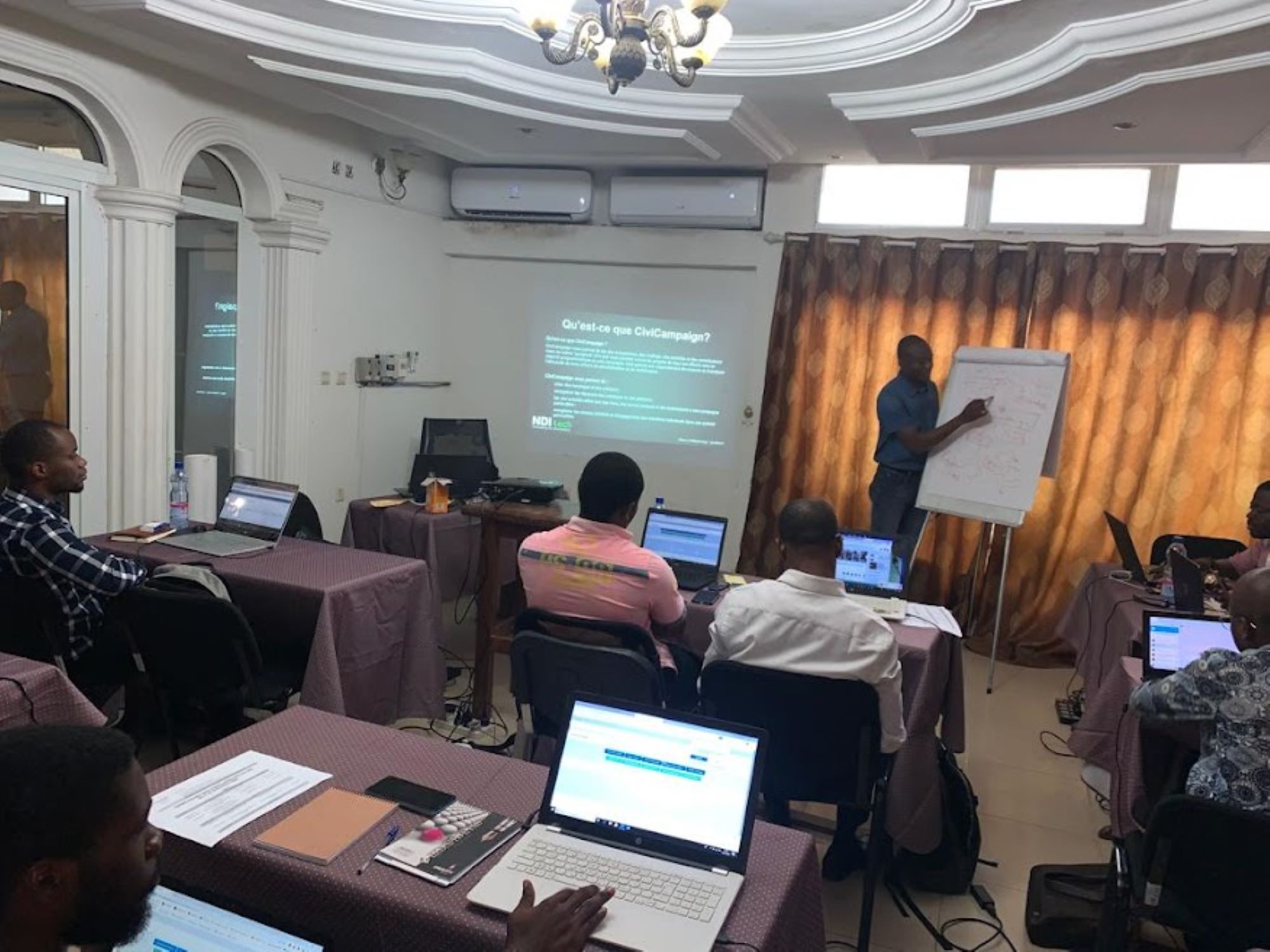Civi for Civil Society: Championing Reform in the DRC

What do you believe to be the most pressing political issues of our times? Political parties and civil society organizations need to know citizens’ perspectives on the most important issues and how to address them – but often they make decisions based on ad-hoc conversations, the views of insiders or staff members, or out-of-date assumptions. In the lead up to the 2023 elections in the Democratic Republic of the Congo (DRC), a group of NDI partners sought to understand their fellow citizens’ views on the key political and electoral questions of the time. So, they used CiviCRM (or Civi for short) to gather that critical information and manage the resulting data in an impactful way as they prepared to launch broad advocacy campaigns before the election.
Collecting information and turning it into usable data, particularly in a large country like the DRC, can be a real challenge. Working with NDI, this group of reform champions selected Civi as a tool to reach out to their target audiences and gather key information on their priorities. Civi is a customer or constituent relationship management (CRM) tool, designed to track an organization’s history of engagement with an individual. NDI hosts Civi for free for partner organizations, while others can either host the software themselves, if they have the requisite technical capacity, or use CiviSpark for easy hosting for a monthly subscription starting at $10. However, learning to integrate any new technology into an organization can be challenging. So, while these eight Congolese partner organizations got access to Civi for free, they also received in-person trainings on why a system like Civi is useful and how best to integrate it into their activities in order to meet their goals.
NDI’s Civi technical experts speak French, Spanish, and English, a huge benefit for the Congolese organizations new to Civi. While Civi has been translated into dozens of languages, including French, it is common for beginning users to need help personalizing it to their needs and understanding best practices for data management. Having a Francophone trainer to work through problems and personalize their Civi instances was a huge benefit to the organizations, as was starting this training in person.
Civi has a wide variety of features for civic and political organizations that can be turned on or off for individual projects based on partner needs, including sending mass email to members, collecting donations, organizing door-knocking or get-out-the-vote campaigns, tracking casework, or managing relationships with constituents. The civil society organizations in the DRC were trained on how to use Civi to conduct surveys, send mass emails, and track responses. They used the CiviSurvey functionality to ask citizens across the DRC about their opinions on topics ranging from mandatory military service, to the United Nations Organization Stabilization Mission in the Democratic Republic Of The Congo (MONUSCO), to corruption. The advocacy organizations all brought to the table spreadsheets with the contact information they had for their supporters. Cleaning the data – making sure information was complete for each individual, removing duplicates, and altering the format so it was standardized – is always an important step when adopting a CRM tool, but it took longer than partners had expected. The data they gathered helped them increase coordination of their advocacy campaigns and make their work more impactful as the December 2023 presidential elections approach.
CRM systems can help organizations in a wide variety of ways. At its core, these tools help any civic or political group be more data-driven, easing and enhancing communication with supporters and other interested people. Unlike with social media platforms, these messages are guaranteed to be delivered to their intended audience. In the DRC, these organizations received over 1,200 responses to their surveys, and through this exercise they were able to dramatically improve their capabilities for internal communication and outreach, allowing them to be more representative and giving them powerful new capabilities that they were excited to use in the future.
